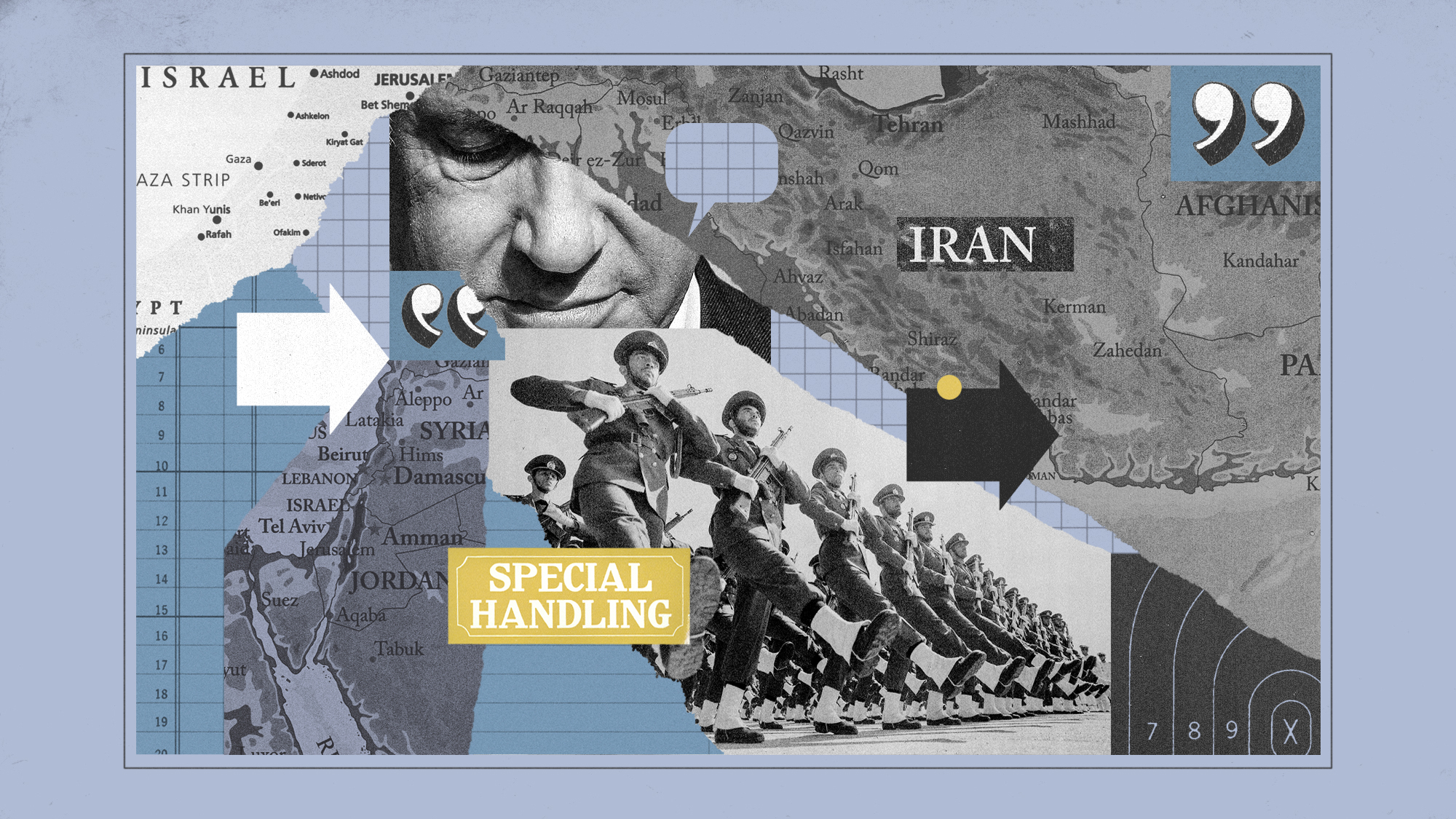Is there a peaceful way forward for Israel and Iran?
Tehran has initially sought to downplay the latest Israeli missile strike on its territory

A free daily email with the biggest news stories of the day – and the best features from TheWeek.com
You are now subscribed
Your newsletter sign-up was successful
Israel attacked Iran overnight in what appears to be a retaliatory strike after weeks of escalating tensions between the two nations.
US officials confirmed to CBS News that an Israeli missile hit Iran in the early hours of Friday morning, with explosions heard around the central city of Isfahan.
There have been contradictory claims about the scale of the attack on Iran's third most-populous city, said to be home to several nuclear facilities, as well as a large airbase and missile production complex.
The Week
Escape your echo chamber. Get the facts behind the news, plus analysis from multiple perspectives.

Sign up for The Week's Free Newsletters
From our morning news briefing to a weekly Good News Newsletter, get the best of The Week delivered directly to your inbox.
From our morning news briefing to a weekly Good News Newsletter, get the best of The Week delivered directly to your inbox.
So far, Iran's response to the "limited" strikes has been "muted and mild", said the BBC's security correspondent Frank Gardner, with some officials "denying outright that it even took place at all".
What did the commentators say?
With Iran's leadership facing serious domestic challenges, the regime is seeking to appear "victorious in its approach to Israel", said Gardner. Last weekend's missile strike against Israel was presented as "teaching the enemy a lesson", despite being largely unsuccessful, with almost all of the missiles shot down by Israel and its allies.
Iran's response today "is partly about saving face and looking strong", said Gardner. "But it is also about calibration, deterrence and calculated responses."
Israel's attack last night was a sign that it "does intend to continue this game of high-stakes poker with Iran", the UK's former ambassador to Lebanon, Tom Fletcher, told BBC Radio 4's "Today" programme.
A free daily email with the biggest news stories of the day – and the best features from TheWeek.com
"Clearly, Iran is starting to signal that it is not necessarily a major escalation," he said. "They are playing it down. And of course, Israel could have chosen to do something more dramatic."
Such a limited strike on Iran may actually be an effort from Tel Aviv to "climb down from a major kinetic conflict", Dr Andreas Krieg, an expert on Middle Eastern security from King's College London, told MailOnline. "If this is the extent of Israel's retaliation it could be described as a de-escalatory strike. We could say that this attack marks a return to the shadow war that has been ongoing for years if that is the extent of it."
Domestically, there is little appetite for conflict among the people of Iran, said Arash Azizi in The Atlantic. Most Iranians are "sick of the Islamic Republic and its octogenarian leader", Ayatollah Ali Khamenei, whose decades-long rule "has brought Iran economic ruin, international isolation, and now the threat of a war".
With the vast majority of Iranians boycotting the past two national elections, and hundreds killed in anti-regime protests in recent years, the current government "doesn't represent Iranians".
However, Israel's "troubled" Prime Minister Benjamin Netanyahu "may want nothing more than a war with Iran to distract from his failing war in Gaza and his declining popularity at home". But the US and Israel's allies would be wise to push him to "avoid a broader conflagration that will benefit no one in the region, least of all the people of Iran or Israel".
What next?
Iranian officials told Reuters that Tehran had no plans for an immediate retaliation against Israel, despite contradicting statements made by several senior politicians earlier this week.
Other experts have said there is still potential for a wider conflict. Gabrielle Reid, associate director at security firm S-RM, warned that Iran's 13 April missile and drone strikes on Israel "demonstrated a shift in the country's stance to one more open to direct military engagement", adding that it was clear that "both countries are edging hostilities forward".
"Now, it comes down to how Iran will respond," said Reid. While it has chosen to highlight the success of its defence systems and downplay the severity of the attack "this could change should there be any further strikes from Israel".
Israel's strike on Iran was a clear message to Iran that it can "dial it up" and strike deep into Iranian territory, Fletcher told the BBC. "The danger in all of this, of course, is that there is risk of miscalculation."
Sorcha Bradley is a writer at The Week and a regular on “The Week Unwrapped” podcast. She worked at The Week magazine for a year and a half before taking up her current role with the digital team, where she mostly covers UK current affairs and politics. Before joining The Week, Sorcha worked at slow-news start-up Tortoise Media. She has also written for Sky News, The Sunday Times, the London Evening Standard and Grazia magazine, among other publications. She has a master’s in newspaper journalism from City, University of London, where she specialised in political journalism.